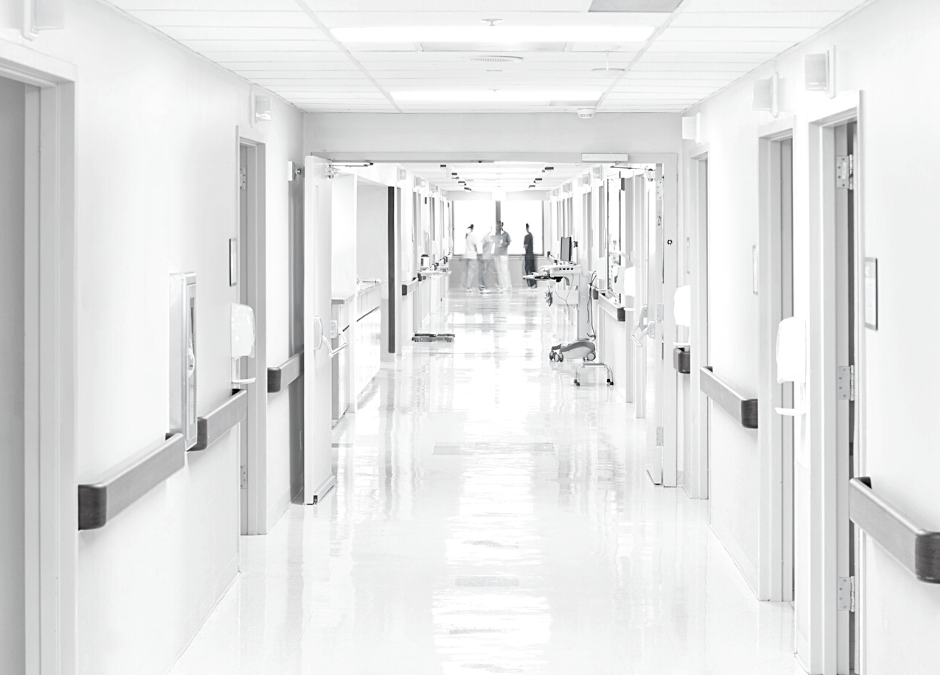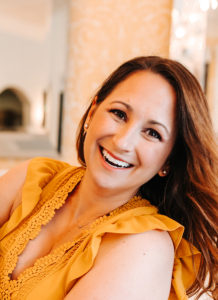
Dear Residency, from a Resident Wife
Dear Four-Year, Anesthesiology Medical Residency,
Today, we say goodbye after four years together. The 1,460 days that my family and I have spent with you have been the hardest of our lives so far, in every possible way: professionally, physically, financially, emotionally, and spiritually. I often tell people that if I had known what I was signing up for, I likely wouldn’t have put my name down. But I did – the whole family did – and here we are.
Do you remember when we first met? I sure do.
In the three weeks before medical school graduation, I gave birth to our second child, a baby brother to our 19-month-old son. We packed our entire house to move with a newborn and a toddler. My husband and I took our newborn with us to clean out my classroom at my dream teaching job because our new location was too far for me to continue working there. Then our dog’s health rapidly declined after a lengthy illness, and we had to make the gut-wrenching decision to put him down. We had to let go of our elder son’s beloved nanny of a year and a half, our most reliable source of childcare and a precious influence and support during my early days of working motherhood. I got mastitis. We moved to a new house in a new town with our newborn and toddler and unpacked. Then came the graduation ceremony, after which we threw a giant party with family and friends. At three weeks postpartum, I was so sleep-deprived and physically exhausted during the party that I ended up sobbing in a back bedroom while I changed the baby. It was three weeks of whiplash for our hearts, minds, and bodies, but we couldn’t dwell on it because two weeks later orientation started, and on its heels July 1, the Medical New Year.
For the four years that followed, Jeff regularly worked 12-16 hour days and 80+ hour weeks. Sometimes he worked for 13 days straight. Now and then we would get him home at 5 or 6, but many days it was well after 7 or 8, after starting work at 6 am. He did somewhere around 200, 24-hour shifts. Three times, he stayed behind on emergency teams while I evacuated with the kids. For two months he lived away from us while he did rotations in Houston.
“I have no idea when this case will finish.”
“There is 0% chance I’m making it home for dinner/bedtime/Tball/etc.”
“Call to say goodnight?”
“I have to go back in.”
“Miss y’all.”
“Is Daddy home?”
“Is he asleep or awake?”
“Is Daddy coming home tonight?”
“Is Daddy still at work?”
And through sobs: “I miss Daddy.”
You were a roller coaster of pride and anxiety, elation and misery, joy and despair, punctuated by particular moments that I won’t soon forget:
Watching Jeff preop at the table or on our bed or in our closet. At first, it would take him hours (after working the usual 12-14 hour shift), but by the end, he could do it in 5 minutes.
The handful of times he came home and said he had to throw his shoes away because they got doused in blood or some other bodily fluids.
When he shaved his beloved beard to get fitted for his N-95 at the beginning of the pandemic.
Finding him asleep in the middle of the living room floor while trying to play with the kids after a 14-hour day, or after an overnight call.
The times he stripped his scrubs off in the garage and went straight to the shower because he had been in the OR for hours with Covid+ patients.
When I asked why he hadn’t left yet because I knew he wasn’t on call, and his response was a photo of a blood-soaked OR floor. He had stayed late to try to help save a mother that hemorrhaged over, and over, and over. (She made it.)
The first time he had to pronounce someone dead.
When he walked in the back door from working a 24-hour shift, having just learned his father had died.
The countless concerned glances Jeff and I gave one another from across the room, fearful that any scratchy throat or sniffly nose meant either he or we would become seriously ill or die. During the pandemic, Jeff took on immense personal risk of infection at work while the children and I accepted risk at home. We anxiously awaited life-saving vaccines to be approved, and I’ll never forget the relief I felt when he was finally able to be vaccinated, then me, then our children. We were likely to survive. Some medical residents and their families were not so fortunate.
You pushed him to the limit. He worked so hard, and he sacrificed so much.
And then, when he was home, he husband-ed and parented. He made dinner plates, cleaned the kitchen, packed lunches, bathed babies, and did bedtime. He brought donuts home after 24-hour call shifts so we could do something special together before he went to bed. He made time to go on date nights and to spend time with me. Sometimes he wouldn’t sleep that much after 24-hour calls so he could get up and spend time with us. On days off, many times he studied, read, made schedules, or even got called back in. He quietly got glowing reviews from colleagues and attendings, awards, and Chief. When I think of how proud I am of him, it feels as if my heart might burst.
Although I did not go through medical training at the hospital, I sure as hell went through it at home, with my own interminable hours and a workload no one human should have to shoulder. We had two kids under two, and then three kids three and under (and if you are wondering why in God’s name, it’s because we got married at 29 and put off starting a family while we both finished advanced degrees, not that we owe anyone an explanation.) I shouldered the weight of the household and babies so Jeff could make the most out of these four intense training years.
While Jeff trained, I solo-parented through stomach viruses, hand foot and mouth, colds, severe postpartum depression, holidays, entire holiday weekends, entire months when Jeff was on an away rotations, over 200 24-hour overnight calls, each followed by another 7-8 hours while Jeff slept in the closet after getting home (yes, we kept a twin mattress in our closet), pregnancy nausea and vomiting that lasted 38 weeks, and Jeff’s days off when he had to study or read for whatever exam was next because there is ALWAYS another exam. It was my job to maintain the routine, keep everyone entertained, manage the household, hold myself together, and try not to miss out on too much. I am equally proud of my fortitude during these years.
Many angels helped me along the way, including my parents, my mother-in-law, my cousin Lily, our saint of a babysitter Leighanne, my therapist, and friends who delivered meals, ginger ale, and wine right when you needed them. I am forever indebted to them for their support.
While you gave Jeff part of his medical education, I got an education of a different sort. I learned to ask for help and to accept it. I discovered how to create and express boundaries. Postpartum depression introduced me to the wonders of psychiatric medication and therapy, which both saved and changed my life. I re-discovered who I am after giving up a career I had so intertwined with my identity. I became skilled at zeroing in on exactly how I wanted to spend precious minutes of free and family time. I learned to manage being deeply resentful, immensely grateful, and cautiously hopeful, often at the same time. I got involved in our resident-spouse organization, Resiterns. As I supported other resident families by planning social events and connecting them with resources, I became a capable event planner, non-profit budgeter, leader of the board, fundraiser, networker, and more. Later, I went back to work teaching and tutoring part-time. I have always been independent, but I gained confidence in myself that I never thought possible. By the end of residency, I had found myself, maybe for the first time.
You gifted me sweet moments with just me and the kids, and nights alone to watch whatever I wanted on TV and take up the whole bed. You gave me a chance invest in myself and to start writing again. You offered opportunities to find simplicity and ease in pretty much anything. So many times, you stopped me in my tracks with beautiful, sacred moments that reminded me of how lucky I am.
And you gave me friends – the kind of friends that hold you together, that love you exactly as you are and where you are, and that show you the kind of human you want to be: Amy, Gaby, Leigh, Maria, Lauren, Marcela, Jessica, Holly, Evelyn, Stephanie, Tayra, Jarica, Judith, Erin, Nikki, Amanda, Jen, Maggie, Abril, Germaine, Vicki, Morgan, Sean, Nikita, Sommer and Craig, Shreya, Kelly. Probably the only reason I would go through this all over again would be for the friends.
We aren’t entirely done with medical training yet – there are boards to take and one more year of Chronic Pain fellowship – and to an extent, medicine has become just another thread in the tapestry of our lives. When Jeff holds my hand, he can’t help but slip his fingers over my wrist to feel my pulse. And when I am little spoon, his fingers dance down my spine feeling for epidural spaces and processes. Medicine is always with us.
But our particular chapter together has indeed come to a close. We leave with meager bank accounts and clearer values; crushing debt and hope for the future; extra grey hairs, wrinkles, and pounds, and gratitude for the miracle of being alive; a marriage that held on for dear life and came out the other side stronger; our three beautiful children, who have only known a life with medical school and residency and who are so excited to have our family unit together more often; and a treasure trove of friendships and memories that I will cherish always.
Goodbye, residency. Thank you for making my husband into the physician and man he is today. We are both leaving you as better people.
With gratitude,
Sarah




